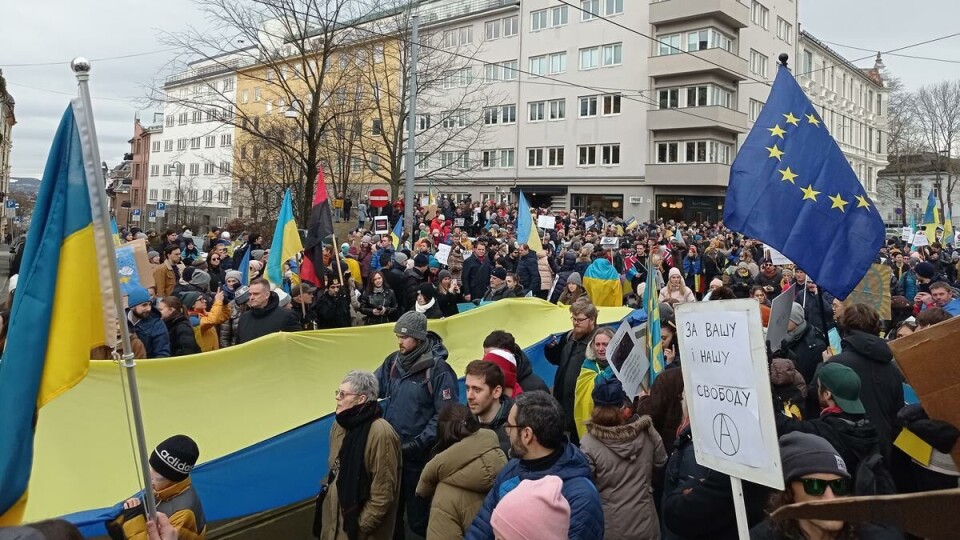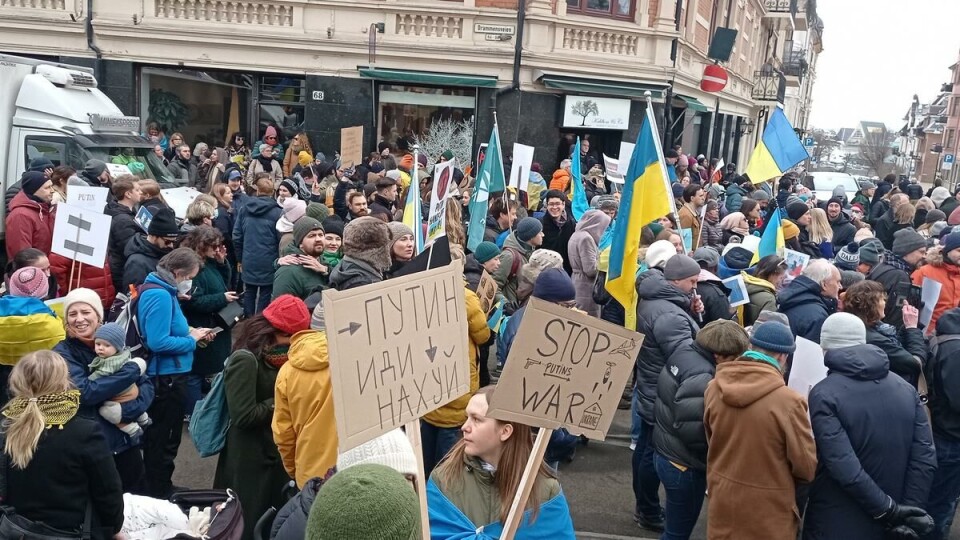
The atrocities in Ukraine continue but we care less and less
The number of casualties of the Russian attack on Ukraine is now measured not in tens but in thousands.
As Russian troops are increasingly targeting civilians, hospitals and schools, and the recently surfaced photos of the massacre in the Bucha village are prompting world leaders to call Vladimir Putin a war criminal, one could expect the level of public outrage to not only maintain its initial level but to rise. It is not the case. As hard as it is to understand, the human tendency to have a more visceral reaction to the death of one person than to the deaths of thousands is a fact long known and studied by psychologists and social scientists. What is it then that allows us to disassociate from large-scale loss of life?
The lack of adequate response to human suffering is so prevalent, that it ought to be obvious that we must reflect on why we collectively fail to help those who need us.
Protests that lost their momentum
When Russia attacked Ukraine in February, a wave of protests spread across the world. In Oslo, Ukrainians, Norwegians, Russians, and many other national communities gathered together in front of Stortinget and in Frogner to express their outrage over the conflict that just weeks before seemed unimaginable. Joined by politicians from virtually all sides of the spectrum, we chanted anti-war slogans, waved the Ukrainian flags and sang “Shche ne vmerla Ukrainy i slava, i volia”, the national anthem of Ukraine. The city authorities named the street crossing by the Russian Embassy “Ukraine Square”. But the protests were extremely short-lived. Apart from the occasional blue and yellow flags in the windows, it is hard to spot any visible signs of the opposition to the Russian aggression. Norway is not isolated in its increasing indifference towards the conflict and its victims. Across the world, people seemed to stop caring the way they did at the onset of the war. Nor is the conflict in Ukraine any different than other wars, genocides and mass-deaths, both in the past and in the present. Why is it then that we find it so easy to slur over mass human suffering?
One victim is a tragedy, mass casualties are just statistic
Public indifference to the loss of life is not an isolated incident, it’s a pattern. Humanity has a long track-record of ignoring genocide, famine and war, as long as it happens out of sight. We did little or nothing to aid victims of famine in Ukraine in early 20th century, the genocide in Sudan in 2000s, aids epidemic among the LGBT community in the 80s. The examples are endless. The lack of adequate response to human suffering is so prevalent, that it ought to be obvious that we must reflect on why we collectively fail to help those who need us.

One way to try to find an answer to the burning question of why we ignore mass loss of life is to turn to existing research on the topic. There isn’t one explanation available but there are studies that shed some light on the phenomenon. The overarching theme is that, even though affect and emotional responses to stimuli are the fastest way to evoke a reaction, they fail to inspire long term action, especially regarding a large-scale loss of life.
Research shows that as the number of victims rises, our attention and the appreciation of the scale of human suffering doesn’t rise accordingly. What’s more, once the number of victims rises to the point that it is presented as a statistic, we lose the ability to comprehend the true meaning of the atrocities. Our capacity to feel is simply limited. At some point we stop reading the news presenting the latest attacks. This form of psychic numbing, combined with the news fatigue creates inaction and allows us to ignore what’s happening elsewhere in the world.
Media should then report on the situation in Ukraine continuously and vividly, as well as allow the Ukrainian people to tell their stories personally, to make the war feel “real”.
Appropriate media coverage can help to create a long-term action
As we cannot expect people to maintain their initial interest in providing help to the victims of conflict, media plays an enormous role in facilitating long-term solutions. Statistics fail to consistently evoke emotional responses required for the continuous popular engagement. We are more willing to help identified individuals than statistical victims, remember an image rather than a number. Media should then report on the situation in Ukraine continuously and vividly, as well as allow the Ukrainian people to tell their stories personally, to make the war feel “real”. We as individuals have the responsibility to challenge our biases and recognise that we cannot rely on our instinctive emotional responses, as those will fade away eventually. What will remain is the institutional and political solutions, which we must engage with and hold politicians accountable to not abandon their commitments to provide help to the people of Ukraine.
More information on psychic numbing: Slovic, P., 2007. If I Look at the Mass I Will Never Act": Psychic Numbing and Genocide. Judgment and decision making, 2(2), pp.79–95. Available at
https://www.apa.org/science/about/psa/2007/11/slovic
Some charities you can donate to in order to help the victims of the war in Ukraine:
- https://www.sos-barnebyer.no/barn-og-unge-i-ukraina-trenger-din-hjelp
- https://ukraine.ua/news/donate-to-the-nbu-fund/
- https://vostok-sos.org/en/ukraine-under-fire-support-vostok-sos-aid-operation/
- https://www.rsukraine.org/
- https://m.facebook.com/nt/screen/?params=%7B%22fundraisercampaignid%22%3A337101825010055%7D&path=%2Ffundraiser%2F&refsrc=deprecated&rdr
- https://m.facebook.com/nt/screen/?params=%7B%22fundraisercampaignid%22%3A507886070680475%7D&path=%2Ffundraiser%2F&refsrc=deprecated&
































